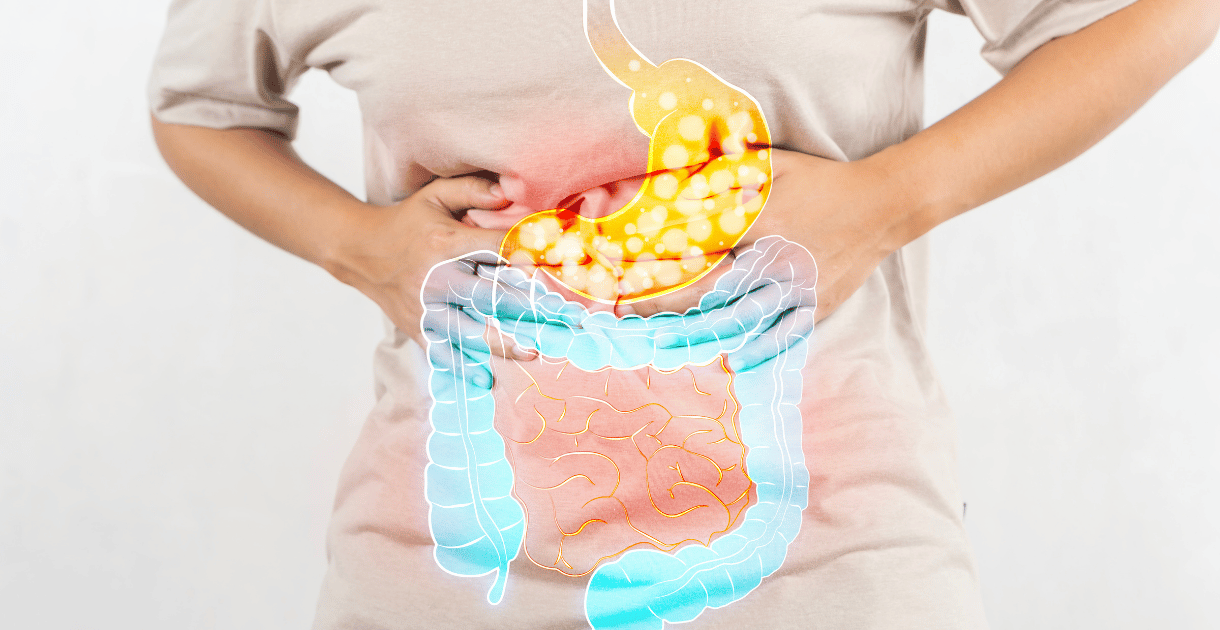Your Gut Does More Than You Think
Most people think of the gut as just a place where food is digested. But science now shows your gut is a powerful control center for hormones, mood, and metabolism. If you’ve been struggling with weight changes, brain fog, or mood swings, the problem may not start in your head — it could start in your gut. At Klinik Q, we help patients restore gut and hormone balance for real, lasting results.
How Your Gut and Hormones Work Together
Your gut and hormones communicate constantly through a network known as the gut-brain-hormone axis. When your digestive system is healthy, it helps regulate:
- Cortisol (stress response)
- Insulin (blood sugar control)
- Estrogen (menstrual and reproductive health)
- Serotonin (mood and sleep regulation)
When your gut health suffers, these hormones fall out of sync — affecting how you feel, think, and even store fat.
1. The Gut’s Role in Weight Regulation
A healthy gut microbiome helps you break down food efficiently and signal fullness to your brain. But when harmful bacteria outnumber the good ones (a condition called dysbiosis):
- Your body absorbs more calories from food
- Inflammation increases, slowing metabolism
- Insulin resistance rises, making fat loss harder
This is why two people can eat the same meal — yet gain or lose weight differently.
2. The Gut’s Influence on Mood and Stress
Your gut produces about 90% of the body’s serotonin, the “feel-good” hormone. When your gut is inflamed or unbalanced:
- Serotonin levels drop → mood dips, anxiety increases
- Cortisol rises → chronic stress and emotional fatigue
- Sleep quality worsens → energy and focus decline
The result is a cycle where poor gut health worsens stress, and stress further damages gut balance.
3. The Estrogen–Gut Connection
Your gut helps process and eliminate excess estrogen through a group of bacteria known as the estrobolome. If your gut bacteria are unhealthy, estrogen can recirculate in your system, leading to:
- Hormonal acne
- PMS symptoms
- Bloating and water retention
- Weight gain around hips and thighs
Balancing your gut bacteria supports healthy hormone detoxification.
Signs Your Gut Might Be Affecting Your Hormones
- Persistent bloating or gas
- Fatigue after meals
- Unexplained weight gain or loss
- Hormonal acne or mood changes
- Food sensitivities or irregular bowel movements
How Klinik Q Helps You Heal from the Inside Out
At Klinik Q, we address the root cause of both hormonal and digestive imbalances. Our process includes:
- Comprehensive hormone and gut testing – identifying bacterial imbalances, food sensitivities, and stress-related hormone shifts
- Personalized treatment plans – combining nutritional therapy, probiotics, and hormone regulation
- Lifestyle and stress management coaching – improving digestion and mental clarity
- Long-term monitoring – to keep your gut-hormone connection in balance
Daily Habits to Support Gut and Hormone Health
- Eat fiber-rich foods (vegetables, fruits, oats, legumes)
- Limit processed foods and artificial sweeteners
- Stay hydrated — water helps hormones and digestion flow smoothly
- Include probiotic-rich foods like yogurt, tempeh, or kombucha
- Manage stress with breathing, stretching, or a short walk after meals
A healthy gut is the foundation of balanced hormones, stable mood, and sustainable weight. If you’ve been addressing symptoms without success, it may be time to look deeper — starting with your digestion. At Klinik Q, we help you rebuild balance from the inside out, so your body and mind can thrive together.



